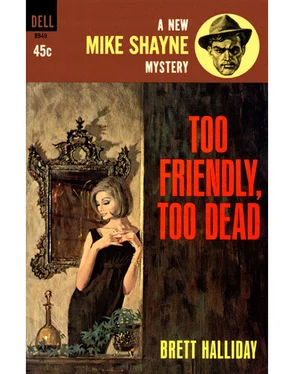Dan Fesperman - The Double Game
Здесь есть возможность читать онлайн «Dan Fesperman - The Double Game» весь текст электронной книги совершенно бесплатно (целиком полную версию без сокращений). В некоторых случаях можно слушать аудио, скачать через торрент в формате fb2 и присутствует краткое содержание. Жанр: Шпионский детектив, на английском языке. Описание произведения, (предисловие) а так же отзывы посетителей доступны на портале библиотеки ЛибКат.
- Название:The Double Game
- Автор:
- Жанр:
- Год:неизвестен
- ISBN:нет данных
- Рейтинг книги:3 / 5. Голосов: 1
-
Избранное:Добавить в избранное
- Отзывы:
-
Ваша оценка:
- 60
- 1
- 2
- 3
- 4
- 5
The Double Game: краткое содержание, описание и аннотация
Предлагаем к чтению аннотацию, описание, краткое содержание или предисловие (зависит от того, что написал сам автор книги «The Double Game»). Если вы не нашли необходимую информацию о книге — напишите в комментариях, мы постараемся отыскать её.
The Double Game — читать онлайн бесплатно полную книгу (весь текст) целиком
Ниже представлен текст книги, разбитый по страницам. Система сохранения места последней прочитанной страницы, позволяет с удобством читать онлайн бесплатно книгу «The Double Game», без необходимости каждый раз заново искать на чём Вы остановились. Поставьте закладку, и сможете в любой момент перейти на страницу, на которой закончили чтение.
Интервал:
Закладка:
Twenty yards into the brush the path became a plank walkway that curved left through marshland, with high grasses and reeds to either side. I slowed down, not wanting to make a clatter on the boards or come upon them without warning. I heard voices and stopped. Just around the bend I could see that the walkway led to a small dock on a salt pond. They were out on the end of it, and Anderson was lifting Cabot out of the wheelchair into an aluminum skiff with an outboard motor. I kept out of sight, following their progress by sound-a few grunts of effort, sloshing water from the rocking skiff, the pull of a starter rope, then the sputtering roar of the motor. I smelled the oily smoke and heard Anderson rev away from the dock. When I peeped around the corner, the skiff was heading toward the center of the pond, and their wake was coming ashore through the reeds. Anderson was at the stern, steering with the motor. Cabot sat up front, propped on boat cushions, his white hair stiff in the breeze. He stared straight ahead, as rigid as a carved bowsprit.
It was too risky to move farther out the walkway, so I stepped off the planks and immediately sank ankle-deep in the goo. The muck nearly pulled my shoes off as I moved awkwardly forward, pushing through the high grasses until I was a few feet from the water’s edge. I still had cover but could see across the pond.
Anderson angled the boat left as a loon dived out of sight. He throttled back and cut a small circle as they reached a faded orange buoy, like the ones lobstermen use. Cabot’s initials were marked crudely on the side. Anderson cut the engine and nimbly latched on to the line of the buoy with a boathook, which he used to pull them closer. When the bow bumped the buoy, Cabot himself grabbed the line and gave a few feeble tugs before Anderson stepped forward in the rocking craft and began hauling up the line, hand over hand. By now I had the binoculars out and could see everything in detail.
He pulled up at least ten feet of streaming rope before the rusting cage of an old crab pot emerged in a cascade of water. The trap dripped as he swung it into the skiff. A gray canister was inside it, roughly the size of a cooler and dripping with algae. They both looked around the pond a few seconds to see if anyone was watching. I held my breath and kept still. The wet ooze had filled my shoes, and my toes were numb.
They turned their attention back to the trap. Cabot muttered something, and I saw Anderson working at a combination lock. A metallic snap was audible across the water. He opened the side of the trap, pulled out the canister, and slowly unscrewed the top. It was watertight, and inside it was a yellow dry bag, the kind kayakers use. It, too, was marked with Cabot’s initials. Inside the dry bag were four sealable plastic bags, each big enough to cook a turkey in, and each was filled with banded stacks of documents and folders. It was Cabot’s stash, his Holy Grail of stolen and privately collected intelligence. Mine, too. My breath came in short bursts. Between the cold and the excitement it was all I could do to hold the binoculars still.
Cabot opened the FedEx box and withdrew the Oppenheim book that I’d left at the Vienna dead drop only two mornings ago. All of my work, and all of his, was encapsulated in this makeshift treasure chest, which Anderson was now resealing to put back inside the trap. He clicked the lock, took one last look around, and heaved the bulky crab trap back over the side. It sank in a hiss of bubbles.
That’s when I realized I’d better get the hell out of there. But it was too late now to try to beat them back up the path. Anderson had already pulled the starting cord, and even if I made it through the muck in time I’d make a terrible racket, and leave muddy tracks on the planks.
So I crouched lower in the reeds, soaking myself and the binoculars as the skiff swung around toward the dock. I shivered nervously as I listened to them go through the whole routine in reverse, with Anderson lifting Cabot back into the wheelchair. All the while I hoped Anderson wouldn’t notice the path I’d cut through the reeds. Fortunately some clouds had come up, and it was still gloomy enough that visibility was poor once you left the open space of the pond.
I heard the whine of the wheelchair motor. Neither man spoke as they headed back toward the house. After they passed I remained still for another ten minutes, waiting for the storm door to slam shut. My fear was that Anderson would go into town in the Jeep and see my bike stashed in the brush at the head of the driveway. But after the door closed there was only silence, but for the lonely call of a loon. I sloshed back to dry land and worked my way around the perimeter of the underbrush, an arduous but necessary route to keep anyone in the house from spotting me. It took me nearly an hour to reach the bicycle, and I didn’t breath easily until I rolled onto the main road and was on my way into town.
Back at the hotel, the desk clerk gaped at me as I trooped across the lobby holding muddy shoes in my right hand. My pants were soaked from the thighs down. The binoculars were dripping, and I smelled like a marsh. I smiled and nodded as if it were all in a morning’s work of vigilant bird-watching, and he nodded back, seemingly horrified.
Eric Ambler, I thought. I had become like a prototypical leading man in an Ambler novel, one of those Everyman types who blunders into something bigger than himself, then keeps tripping over his own two feet while the professionals circle for the kill. If it wasn’t so foolhardy it might even be funny. Give me enough time and maybe I’d be like Jim Wormold, the vacuum cleaner salesman in Graham Greene’s Our Man in Havana, who faked intelligence reports to earn extra cash only to have all his dark postings start coming true, leaving him caught in the middle. High comedy, except at the moment I didn’t feel like laughing. But at least I knew that Curtin and the Hammerhead were out of the picture, safely detained back in Vienna. That alone made me feel better.
In my room I peeled off the wet clothes and hopped into the shower, and by the time I emerged-clean, pink, and reenergized-I had worked out my plan of action for the afternoon and on into the next day. There were holes in it-almost any ambitious plan has holes when there is only one person to carry it out-but its simplest and most appealing attribute was this: By nightfall tomorrow, for better or for worse, the game would be over.
40
At midday I rented a kayak, bought wire cutters at a hardware store, and studied the map. The pond behind Cabot’s house was accessible from a dirt road on the far side, although I’d have to fight my way through another marshy stand of underbrush.
Toward dusk, I lashed the kayak to the top of my rental car and drove it to the spot I’d pegged as the most convenient drop-off. I shoved the boat and paddle far enough into the brush to hide them from passersby. Then I drove to the nature preserve, where I parked on the shoulder of the dirt road and walked to the lookout spot. I hoped my hunch about Anderson’s habits was correct.
Shortly after six p.m. he emerged from the house, right on schedule. He headed for the Jeep while I headed for the car. I gave him enough time to make the turnoff, then I drove to where the kayak was stashed and parked on the shoulder.
The remnants of an old path offered easier and drier access than I’d expected, and the boat was light enough to drag through the grass and sand. The hard part was climbing into the snug cockpit and casting off without turning the thing over. It tipped alarmingly as I shoved off with the paddle. But it finally eased into the pond, and I quickly reached the buoy. I grabbed the line to stop my progress, then held on for dear life as the boat rocked and wobbled beneath me.
Читать дальшеИнтервал:
Закладка:
Похожие книги на «The Double Game»
Представляем Вашему вниманию похожие книги на «The Double Game» списком для выбора. Мы отобрали схожую по названию и смыслу литературу в надежде предоставить читателям больше вариантов отыскать новые, интересные, ещё непрочитанные произведения.
Обсуждение, отзывы о книге «The Double Game» и просто собственные мнения читателей. Оставьте ваши комментарии, напишите, что Вы думаете о произведении, его смысле или главных героях. Укажите что конкретно понравилось, а что нет, и почему Вы так считаете.












